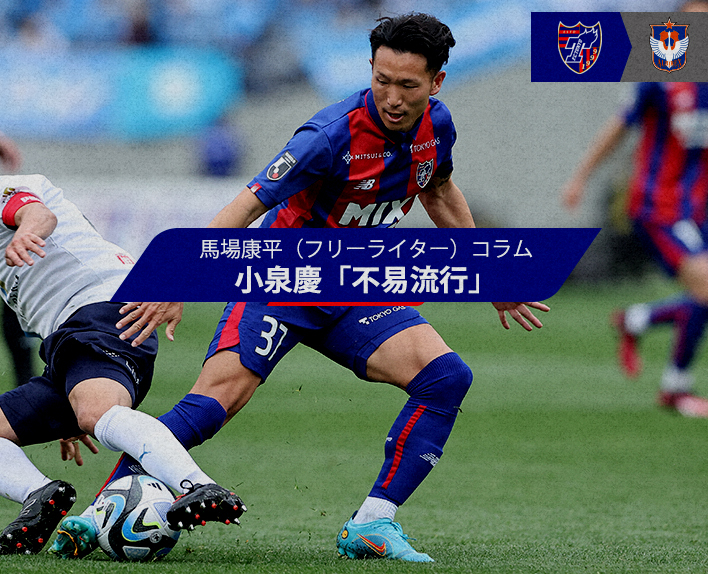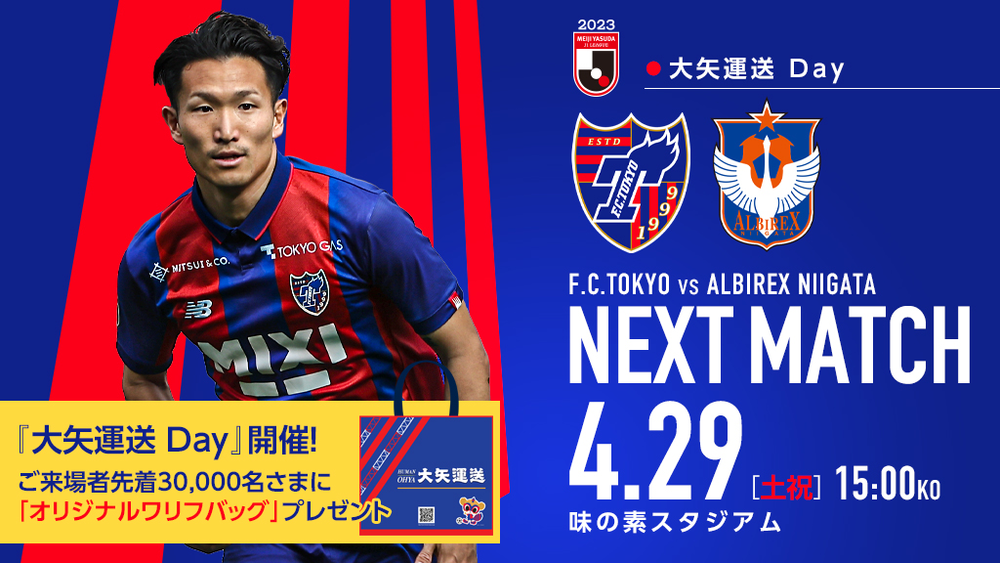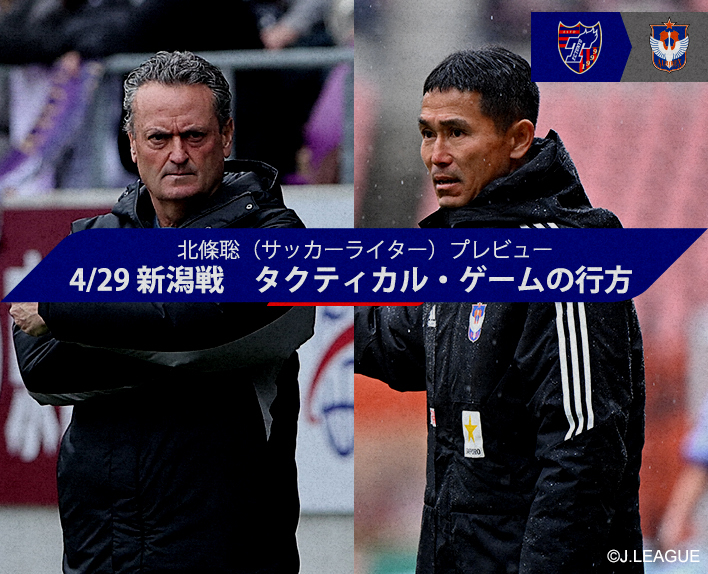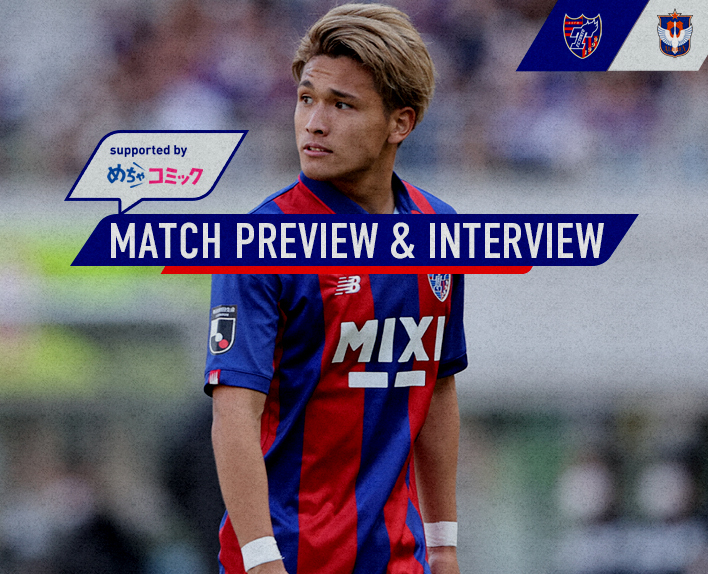At first, when I had time off, I would spend two hours traveling one way to return to my hometown in Tokyo. However, by the time I could think, "This is Niigata" while feeling the cold of the snowy country, I had come to love that city.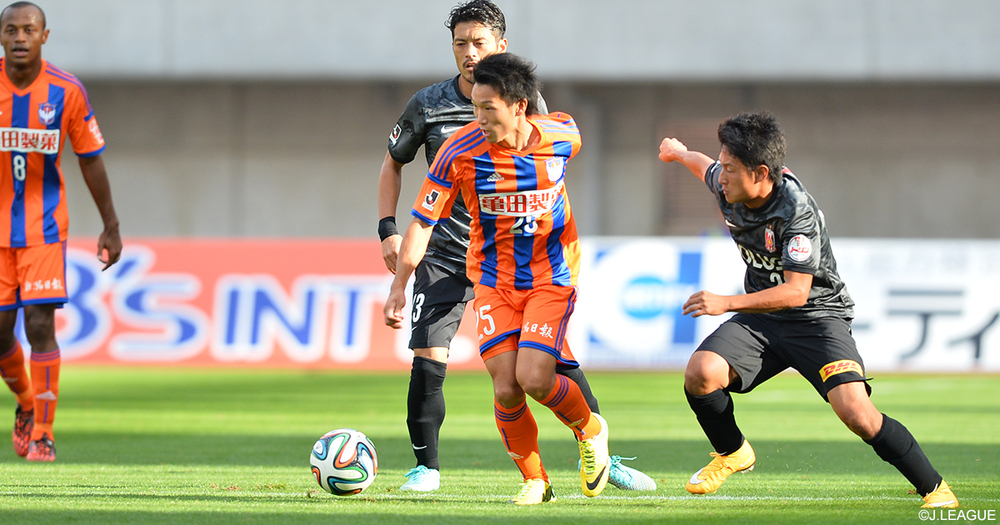
In 2014, Kei KOIZUMI joined Albirex Niigata from Ryutsu Keizai University Kashiwa High School. The options were to either pursue university or turn professional, but he decided on his path, stating, "If I could go pro, I wanted to take on the challenge."
"It was my first time living away from home, so at first I felt homesick. Niigata and Tokyo are two hours apart by Shinkansen. I went back home to hang out with my friends from my hometown and high school every time I had a break. But as time passed, I gradually started to like the city of Niigata. Even the cold, by the end, I began to feel like this is what Niigata is all about. I lived in the dormitory for two years, and then I lived alone for another two years, but the food was delicious, and I really liked the city of Niigata."
At 18, I left my parents' home for the first time and started my career in a place where I knew nothing. Looking back on the four years I spent in Niigata, I can only laugh wryly at how it all began.
"Aren't they just so energetic? I've mellowed out quite a bit now, but looking at the younger kids lately, I think to myself that I was pretty wild back then."
With a swift reply, he asked, "In what way?" Koizumi scratched his head and continued, "Well..."
Every time I played a match, I was a player who would fight with the opponent. I was young even off the pitch.
If I had returned, I probably would have been sent somewhere else if it weren't for Niigata. At that time, I really think I was blessed with great seniors and coaches.
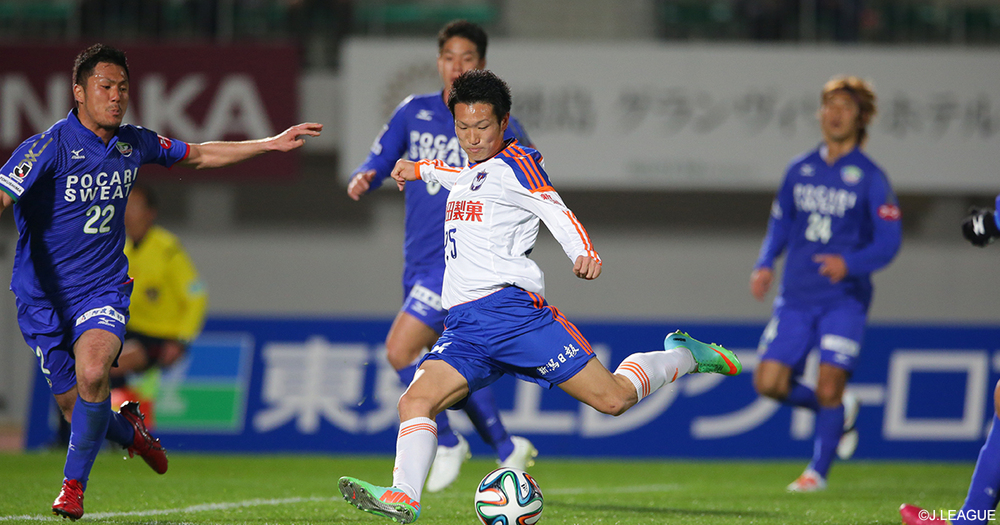
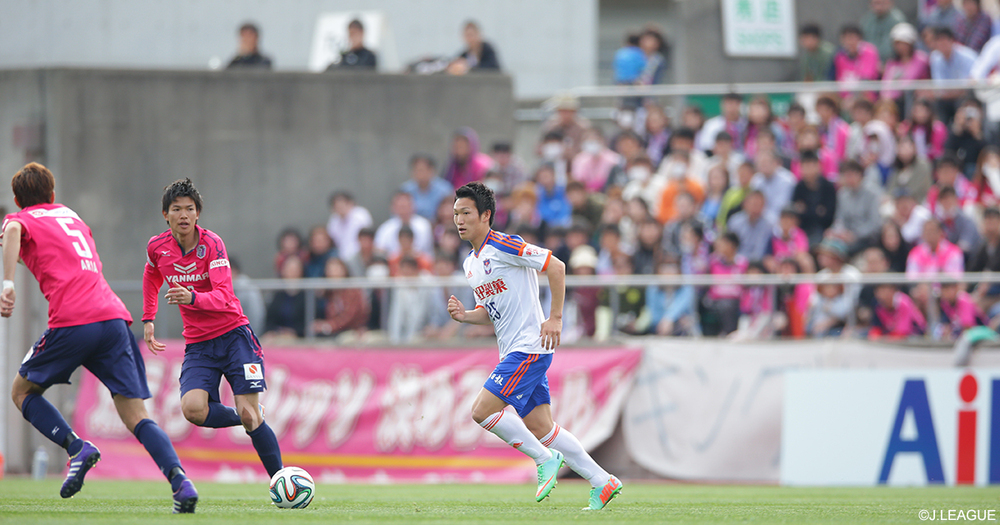
The story of such a "crazy player's crazy debut match" made me burst out laughing. It was the J1 League Sec. 5 match against Cerezo Osaka on March 29, 2014. Just ten days earlier, he had made his first official start in the Nabisco Cup Group Stage Sec. 1 match against Tokushima Vortis, where he played the full match. Starting on the bench, Koizumi thought to himself while watching the game, "It seems like I won't get a chance to play today" as the score remained unchanged in the second half.
Just when he was feeling too relaxed, he was suddenly called by name. He stepped onto the pitch as a right-side half in place of Adomu Tanaka in the 15th minute. A few minutes later, a player from Niigata was fouled on the left side, leading to an argument with the opposing player. Koizumi was so overly excited that he lost his temper and ran to the opposite side, snapping at every player he laid eyes on.
"After that, I was really scolded by the Cerezo players. It was such an intense debut match (laughs). I still remember it, and I can't believe it now. I was biting back against players of the Japan national team level, saying things like, 'Who do you think you are?' That was my debut match. It was the complete opposite of now; I felt like just a fool who knew nothing. There are many young players in Tokyo now, but I think they are better compared to me back then."
Even though he was a bit of a risky player, his teammates, staff, and supporters in Niigata warmly accepted him. He was cherished by Kengo Kawamata, who said, "I was reckless, but I received a lot of support." He lived in the dormitory with players of the same generation, such as Musashi Suzuki, Ken Matsubara, Kazuki Kozuka, and Michael James Fitzgerald. "I can only express my gratitude." He had a smooth start, appearing in 26 league matches in his first year. However, he was scolded almost daily by then-coach Masaaki Yanagishita.
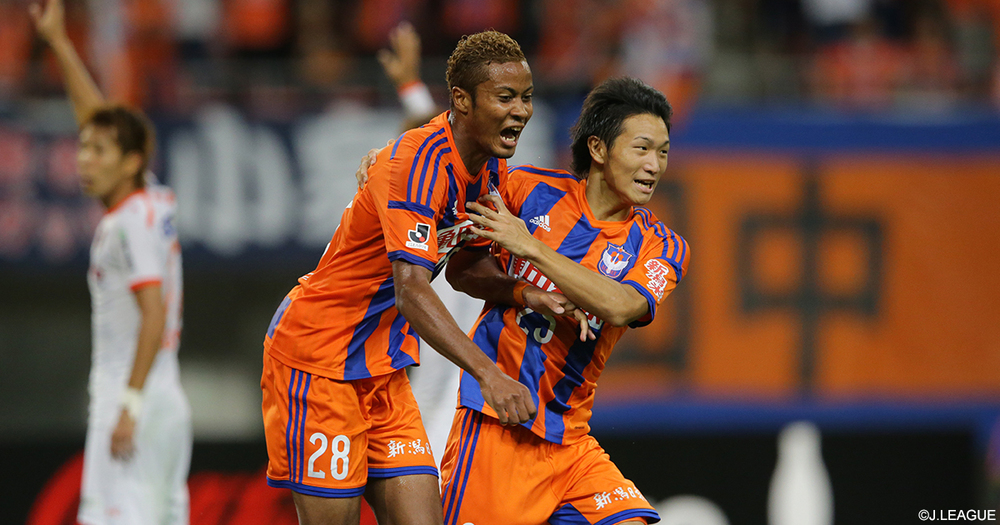
"It may have been good that I played instinctively without thinking too much right after graduating high school. However, I was scolded every day. The person who taught me that I couldn't play in matches unless I could first fight was very important to me. They said a lot about technical aspects, but also emphasized that if I couldn't handle the basics of fighting for the ball, I wouldn't be allowed to play in matches. I believe that part connects to who I am today."
Koizumi, who has just begun to climb the professional ladder, learned the strict etiquette of the competitive world from Coach Yanagishita. He also had the opportunity to meet players who would later shape his own career in Niigata. He said he was wide-eyed when he first saw the play of Leo SILVA. He described the impression he received at that time as being that shocking.
"It was quite amazing. They often say 'monster,' but playing next to this kind of player made me realize what a true monster really is."
I admired the player wearing number 8, who tackled both offense and defense with a cool demeanor. Meanwhile, I thought to myself, 'As an 18 or 19-year-old, I can't show a tough face,' and I gritted my teeth many times during the matches to compete.
"He was a serious Brazilian player with a human touch, very much like a Japanese person. If someone like this is in the same position, you must not miss this opportunity."
Thinking that way, I followed closely behind. Every day, I would catch a Portuguese interpreter and ask, "I asked everything I wanted to know." In discussing Koizumi's current situation, Leo SILVA has become an indispensable player. I was influenced to that extent.
"The way he takes the ball is very unique, and he goes for the ball in places where a typical Japanese player wouldn't. I learned that method and mindset. Also, I was repeatedly told about how to use my hands. I was scolded every time I didn't win the ball in duels or pick up the second ball."
Although a bit mischievous, Koizumi is serious about soccer, and without making a single unpleasant face, Leo SILVA took the initiative to look after him.
"I tried to steal everything I could from Leo. That's why he often took me out for meals, and when we played next to each other, I often got scolded. Without a doubt, Leo helped me grow. If Leo was a player who only performed well in matches without practicing properly, I might have thought that I could just play in matches too. It was by watching Leo that I realized the importance of practicing seriously, which is why I can perform well in matches. That's why I was reminded once again that practice is important."
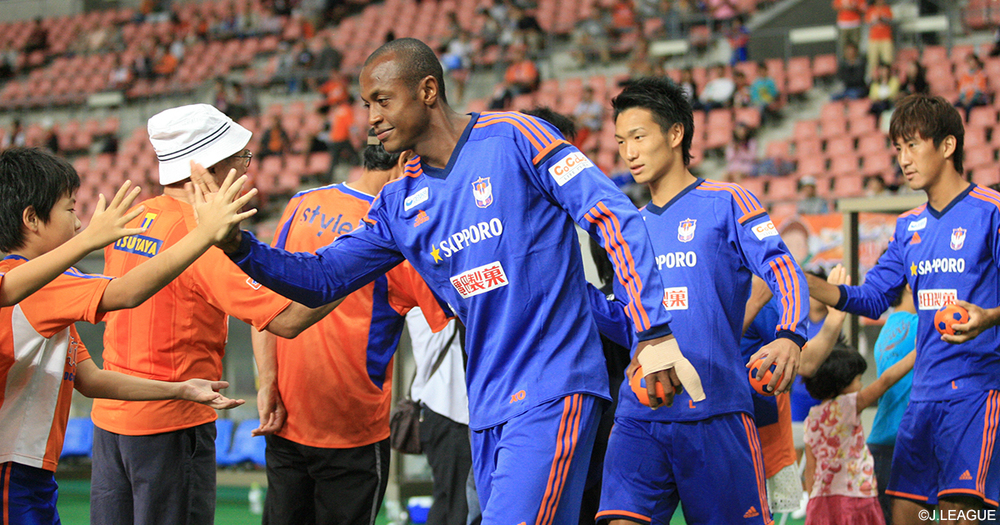
After three years together since his debut, Leo SILVA left the team, and from the 2017 season, the player who learned everything took over the number 8 jersey. Koizumi, who said he had no particular attachment to the number, thought this was the only time he felt that way, both before and after.
"I definitely wanted to take on the number 8 next. I don't usually think about things like that, but it was Leo's presence that made me feel this way. He was such a significant presence for me."
In the 2017 season, the final year at Niigata wearing the number 8, he struggled from the start of the season, and before the final match, it was decided that the team would be relegated to J2 for the first time since their promotion to J1 in 2004. For Koizumi, who also served as vice-captain that year, he said, "There were various conflicts," and continued on.
"I wanted to aim higher, and seeing players from my generation who are in the national team or going abroad made me feel confused and conflicted. That's why I decided to transfer to Kashiwa Reysol."
Even after leaving Niigata, a lump remained in my chest. Before I knew it, Koizumi was naturally checking the results of each match.
"I struggled to get back up after I let myself down. At that time, there were members I was playing with, so it was complicated, or rather, I felt sorry... I was also allowed to play in matches and held the position of vice-captain. There were several matches where I wore the captain's armband. There were many times I thought I could have done more, that I could have performed better."
After transferring to Kashiwa, I experienced relegation to the J2 League the following season and realized that life is not that easy. Over time, in the 2022 season, Niigata conquered the J2 League and achieved promotion to the J1 League for the first time in six years.
"I had been playing in J2 for a long time, and I felt a sense of guilt for being in J1. So, more than being happy, I felt a sense of relief."
Koizumi has built his career and continues to play in Tokyo, his fifth team since Niigata. On the 29th, he will face his former club for the first time. There are only a few players left who played with him back then. However, he knows that unchanging passion.
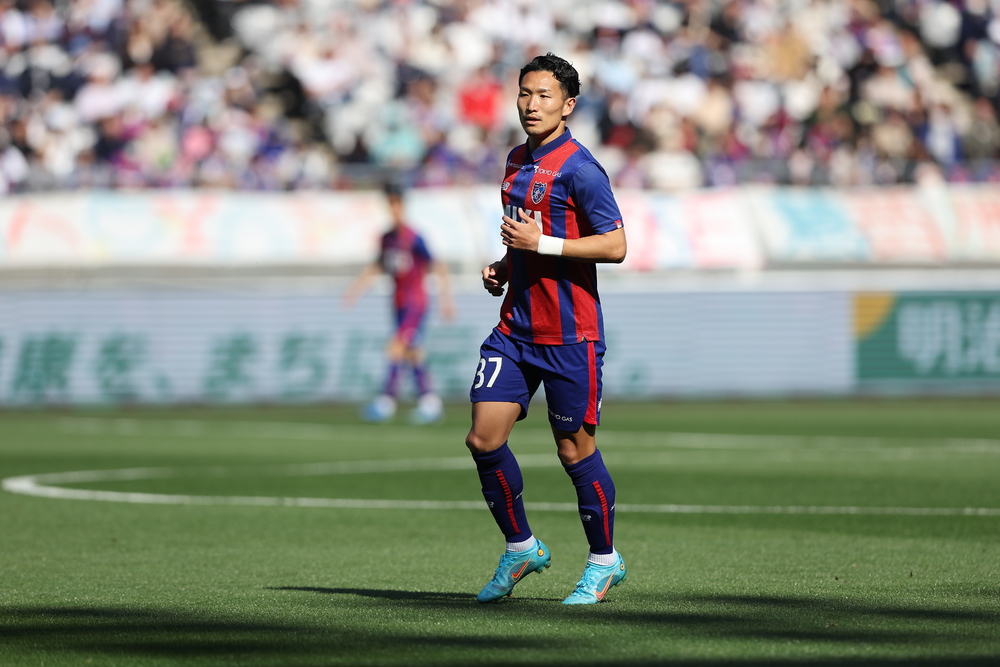
"I still remember the impression of the Niigata supporters, and I also recall how they supported me when I was injured. In the Niigata area, everyone cheers for Albirex. The players felt their presence closely, and I believe the supporters will surely remember us. I'm looking forward to showing them how hard I've been working during our reunion. Since this is the team where I made my debut, I have a responsibility to show them my proper playing form. The members I played with back then often mentioned the significance of the supporters in Niigata. I feel the same way."
The joy of creating my chant for the first time and the gratitude for the support I received remains the same as that day. That's why these words continue.
"Honestly, I can't tell if it's booing or applause. Since I've fallen and transferred, I understand that there are people who don't think well of this world. However, no matter what feelings I have, when I'm on the pitch, I believe I can only do my best for Tokyo. Still, I think there are supporters who personally cheer for me in Niigata, so I want to express my gratitude to those people through my performance, and I want to show a good performance. I can only do my best on the pitch. I have to work hard."
This season marks my 10th year as a professional. Looking back, it feels like it went by quickly, but I have experienced relegation to J2 twice. There were times when I wasn't even on the bench, and when I calculate the number of matches played, I have lost overwhelmingly more matches than I have won. Reflecting on those experiences, it may not have gone as I had envisioned. In the future, I don't have many desires.
"Players like (Yuto) NAGATOMO and Morikun (Masato MORISHIGE) can perform at the top level until they are 36 or 37, but I am not that kind of player. Once I turn 30, I won't be able to run as I used to, and I will have to change my playing style to maintain balance. I don't like that. I think it would be better to quit if that's the case. When I face that reality, my active career will end in the blink of an eye. Thinking that way, I want to win more than I want personal goals. If we win, I can clearly say that the times I couldn't play in matches and the experience of relegation were good experiences. Right now, it feels too half-hearted. I can't clearly say it was a good experience. I believe I can only say such words after winning."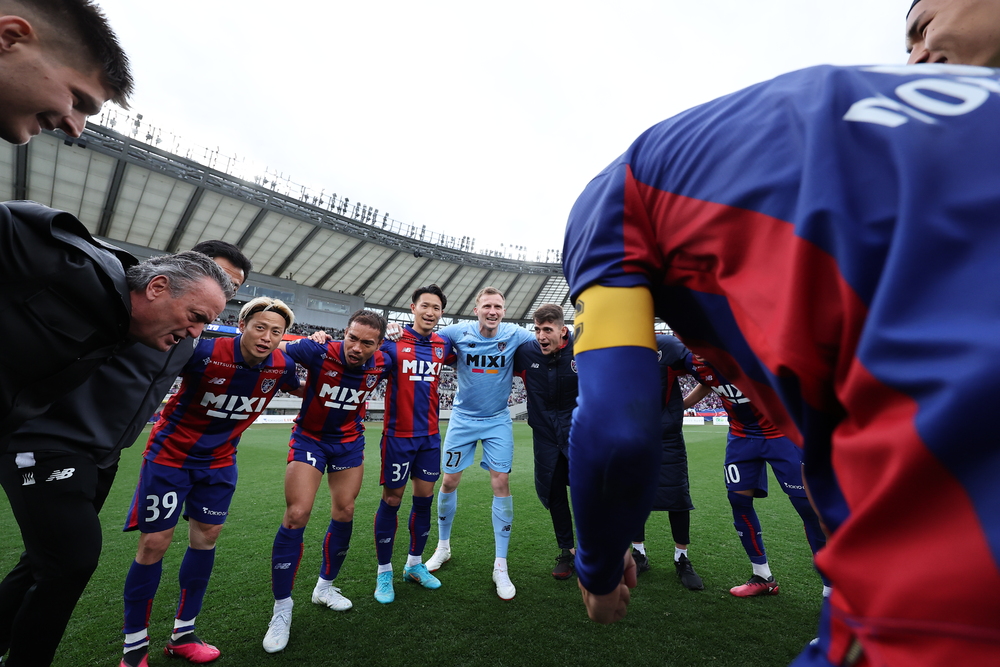
Perhaps that's why there is no obsession with how to win. Koizumi often says, "Honestly, I think it's enough to just win," and that reflects this sentiment.
"What surprised me the most was the passion of the supporters and how closely connected they are to the community. I felt once again how amazing it is to be a professional. Niigata was the one that built the foundation for me, who had just graduated from high school and knew nothing."
The player who was so aggressive on the pitch has come to be called "Aniki," which suits him well as he remains silent. However, there are still things he will not compromise on. More than anyone else, he refuses to acknowledge that he can no longer do what he has cultivated since the very beginning of his career. "A Kei KOIZUMI who can't run," he says. The place where he learned all of this was Niigata.
The reason he runs, which he has accumulated, still moves him. Unchanging flow――. Clearly distinguishing between what can be changed and what cannot be changed. It is in such a way of living that the masculinity of Kei KOIZUMI seeps through.
Text by Kohei Baba (Freelance Writer)
